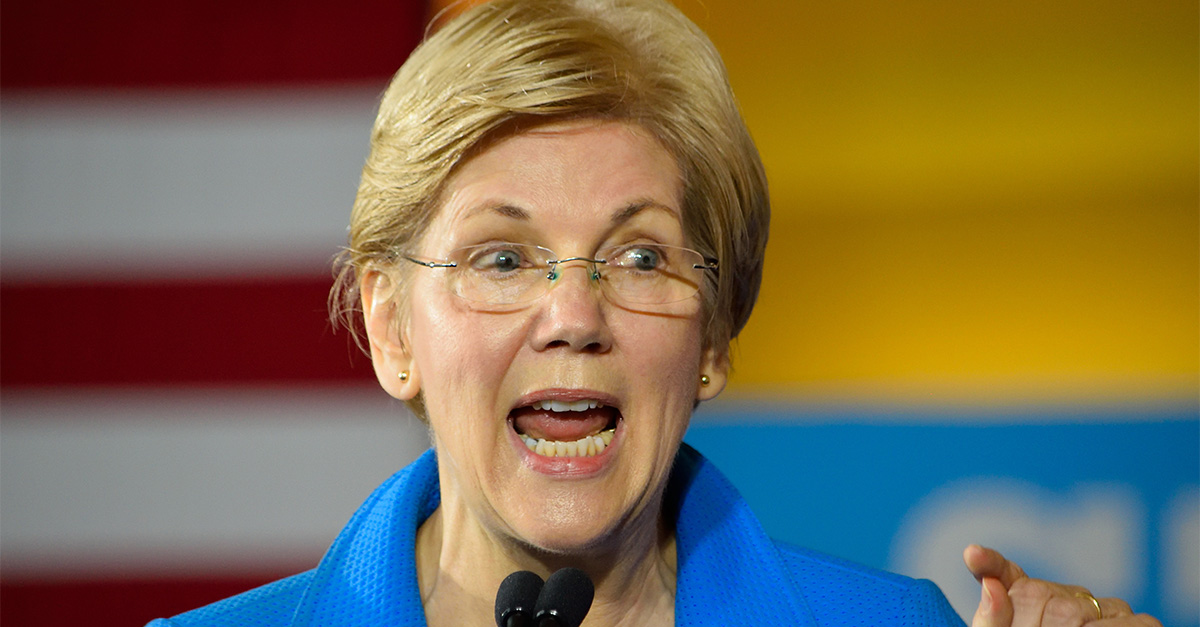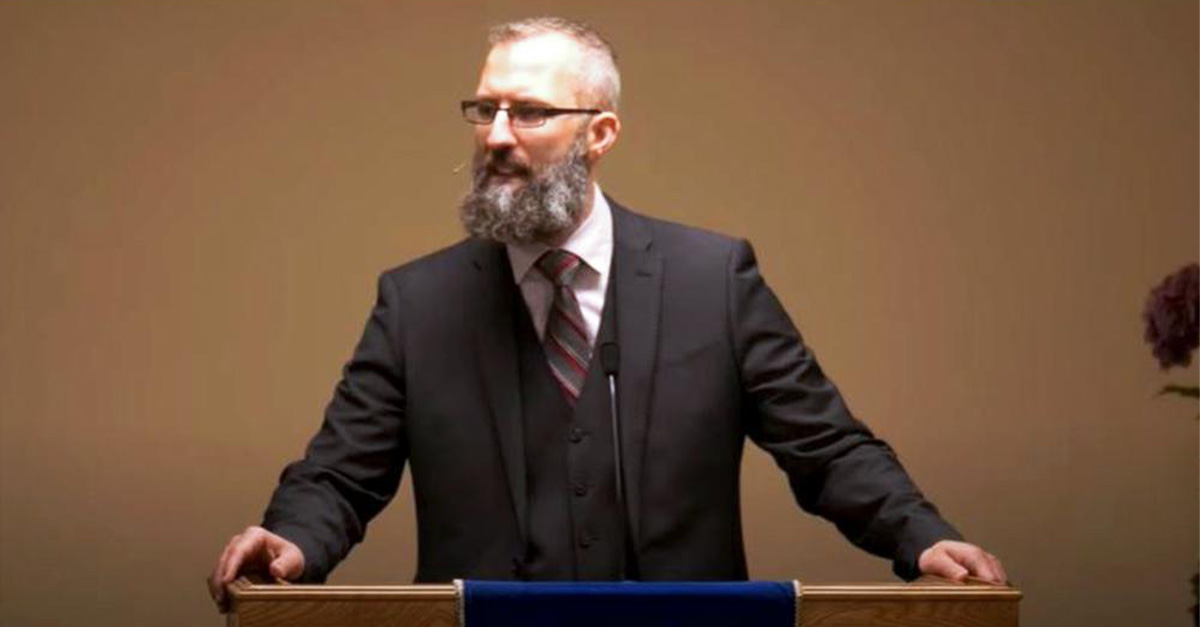


Get a free copy of Parental Rights & Education when you subscribe to our newsletter!

“When the fixed boundaries and traditions that help us make sense of our existence are rejected and we are instead encouraged by secular elites to define our own reality by whatever is rattling around in our head then we devolve into the societal lunacy that we find ourselves in today.”
–JASON MATTERA
Massachusetts Senator Elizabeth Warren is considered a fraud by many because she dubiously professed Native American ancestry, which helped her land a plum teaching job at Harvard Law School as a “minority” hire.
But what if she isn’t a fraud?
What if Elizabeth Warren is actually a trailblazer in woke thinking, appropriating an “identity” that comported to her feelings, even if those feelings were disconnected from reality?
The recent oral arguments at the Supreme Court over academia’s race-conscious admissions process provided a window into how we might view Warren’s fairy tale under our current postmodern rules, especially as we consider other “identity” issues that orbit around gender ideology.
During the nearly five-hour hearing, Justice Samuel Alito had this exchange with the solicitor general of North Carolina, who was defending the University of North Carolina’s system of racial preferences:
Alito: When can a student honestly claim to fall into one of these groups that is rewarded a plus factor? Let’s say the student has one grandparent who falls within that class. Can the student claim to be a member of an underrepresented minority?
Counsel: Yes, we rely on self-reporting.
Alito: One great-grandparent?
Counsel: If that person believes that that is the accurate expression of their identity, I don’t think there would be any problem.
Alito: One great-great-grandparent?
Counsel: As we go on, I agree that it would seem less plausible that that person would feel that this is truly capturing my racial identity, but the same is true for any of the other diversity factors that we rely on.
Alito: It’s family lore that we have an ancestor who was an American Indian?
Counsel: So, in that particular circumstance, it would be not accurate for them to say based on family…
Alito: Well, I identify as an American Indian because I’ve always been told that some ancestor back in the old days was an American Indian?
Counsel: In that circumstance, it would be very unlikely that that person was telling the truth.
Catch that?
Justice Alito got the solicitor general to go from Sure, the student can choose whatever race he thinks best represents his identity to The student may be lying if his identity isn’t grounded in a factual narrative.
That’s quite the shift. Perhaps Elizabeth Warren shouldn’t be let off the hook even under our current postmodern rules.
But why not?
Leftist thought leaders have belittled the notion of universal “truth” as oppressive and anachronistic while simultaneously promoting a relativist framework where each individual conveys his or her own “truth” as the rightful measure of one’s existence.
Which is one big reason why we are subjected to painful verbal gymnastics from transgender activists on how gender is “fluid” and unmoored from a person’s biological makeup. A “transwoman is a woman,” we’re told, because, well, he says so, despite the plumbing below telling a wholly different story.
Fine, premise accepted.
Now, going back to Alito’s line of questioning, why couldn’t a white kid from a ski resort town in Vermont “identify” as a black kid from the Bronx on his college application? The guy’s a premium subscriber to BET+, wears a do-rag to bed, and has the lyrics to every Kendrick Lamar song memorized by heart.
In his mind, he’s down with the struggle and is thus TransBlack.
On what rational basis could campus administrators object to students annexing another race if these same administrators don’t object to students annexing another gender?
To the contrary, these school officials encourage gender theft because, to them, gender is merely a “social construct” that can be altered at will.
The University of North Carolina, for example, has a “transitioning at Carolina” resource page where students are offered tips on “identifying [a] preferred name, changing one’s name in UNC records, changing one’s gender marker in UNC records” and “how to change [a] legal name and/or gender marker on government issued documents.”
Here’s the thing, though: Race and ethnicity are actual social constructs, cooked up by bureaucrats in Washington, D.C., for political purposes, as David Bernstein of George Mason University’s law school has detailed exhaustively.
He observes how the federal government established these designations in the late 1970s in a “very different America” than exists today. “Now we have all these other groups…and we’ve barely changed [the designations] at all.”
High school students of Hmong descent, those hailing from South Korea, and young people of Japanese ancestry, for instance, are all tagged with the sterile description of “Asian” when they apply to college, even though their family heritages are clearly distinct and diverse.
Professor Bernstein notes that the Office of Management and Budget issued what was called “Directive 15” back in 1977, and its purpose was, according to the government ordinance, to require “standard classifications for record keeping, collection, and presentation of data on race and ethnicity in Federal program administrative reporting and statistical activities.”
Directive 15 is responsible for creating the racial buckets of white, Hispanic, black, Asian, American Indian, and the like.
Shoot, the word Hispanic didn’t even formally exist 50 years ago.
Again, we’re talking about literal social constructs invented by politicians that lump disparate factions together arbitrarily.
How is it that students can choose their own gender, which is tied to simple biological examination, but students cannot pick their own race or ethnicity, which are artificial categories that were conceived in a D.C. cubicle?
The woke worldview provides no moral consistency to accept the one and condemn the other.
The University of North Carolina should welcome the Elizabeth Warren style of racial “self-reporting,” just as the school has bent over backwards to accommodate every nonbinary coming-out party on the campus quad.
The Apostle Paul warns us to be on guard against those who “oppose the truth, men corrupted in mind and disqualified regarding the faith,” adding that “their folly will be plain to all” (2 Timothy 3:8-9).
When the fixed boundaries and traditions that help us make sense of our existence are rejected and we are instead encouraged by secular elites to define our own reality by whatever is rattling around in our head then we devolve into the societal lunacy that we find ourselves in today.
Our folly is plain to all.
Follow Jason on Twitter! @JasonMattera
Ready to dive deeper into the intersection of faith and policy? Head over to our Theology of Politics series page where we’ve published several long-form pieces that will help Christians navigate where their faith should direct them on political issues.
